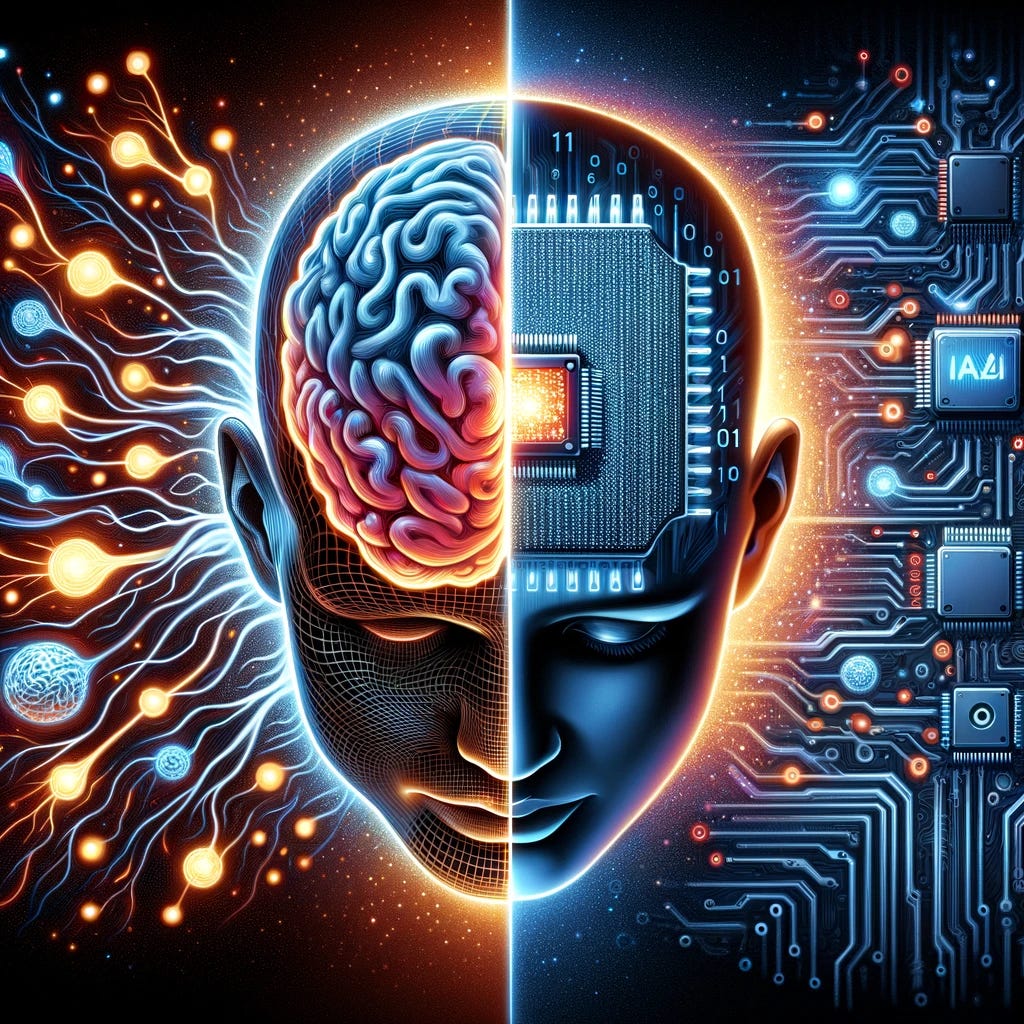Artificial intelligence (AI) has become a game-changer across industries, and writing is no exception. From generating product descriptions to crafting basic news articles, AI tools are becoming increasingly sophisticated.
But before you hit the panic button and worry that robots are about to take over all our writing jobs, let’s take a deep breath. Here’s why human writers are still the undisputed champions in the realm of words:
1. Unleashing Creativity: AI Struggles with the “Aha!” Moment

Imagine you’re writing a blog post about the history of pizza. AI can churn out factual details – its origins in Italy, the evolution of toppings, and maybe even some interesting trivia. But can it capture the mouthwatering sizzle of a freshly baked pizza? Can it weave a story about the joy of sharing a slice with friends?
Here’s the rub: AI can analyze vast amounts of data, but it lacks the spark of creativity that human writers possess. We can draw on personal experiences, emotions, and a dash of imagination to craft stories that resonate with readers. We can think outside the box, come up with unique ideas, and inject humour, wit, or a touch of personal voice – all things that make writing truly engaging.
2. Understanding Nuance: AI Gets Lost in Translation

Language is a complex beast, full of subtle nuances, sarcasm, and cultural references. AI can struggle to grasp these finer points. For example, if you ask an AI tool to write a social media post about a new product launch, it might miss the mark entirely. It could sound robotic and generic, failing to capture the excitement or the specific tone you’re aiming for.
Human writers, on the other hand, are masters of nuance. We can understand the subtle differences between formal and informal writing, adjust our style depending on the audience, and use language that evokes emotions and resonates with the reader. We can even craft jokes that land (most of the time!), something AI humour is still struggling with.
3. Building Trust and Authority: The Human Connection Matters

Think about your favourite authors or bloggers. They likely built a loyal following because their writing resonates with you on a personal level. You trust their voice, their expertise, and their ability to deliver valuable information or an entertaining story.
AI-generated content often lacks this human connection. It can feel impersonal and generic, leaving the reader unsure about the source or the credibility of the information. Human writers can build trust by showcasing their expertise, providing evidence and references, and injecting their unique perspectives into their writing.
4. Adapting to the Audience: AI Doesn’t Know Who You’re Talking To

The way you write for a group of children is very different from how you write a business report. Human writers excel at adapting their style and tone depending on the audience. We can use simpler language for kids, inject technical jargon for industry professionals, and tailor the humour to resonate with different demographics.
AI, on the other hand, can struggle to understand the specific needs of an audience. Its writing might be too complex for beginners or lack the professionalism needed for a business setting.
5. The Evolving Landscape: Humans Stay Ahead of the Curve

The world is constantly changing, and so are the topics we write about. New technologies emerge, social trends shift, and current events unfold at a rapid pace. Human writers are adaptable and can research new concepts quickly, incorporating them into their writing seamlessly.
AI writing tools rely on the data they are trained on. This means they can struggle with entirely new topics or concepts that haven’t been extensively documented yet. Here, human writers have the edge – we can learn and adapt on the fly, keeping our writing fresh and relevant.
6. Emotional Intelligence: AI Misses the Feels

Humans are emotional creatures, and that translates into our writing. Our word choices, descriptions, and storytelling techniques can evoke emotions in readers—happiness, sadness, anger, and inspiration.
AI, on the other hand, struggles to understand and process human emotions. It can analyze data about emotions, but it can’t truly feel them. This means AI-generated writing often lacks the emotional depth and impact that human writing can achieve. A heartfelt blog post about overcoming adversity or a suspenseful thriller wouldn’t be the same without the human ability to tap into the emotional core of the story.
7. Evolving Language: AI Needs a Dictionary Update

Language is a living, breathing thing. New words are constantly being created, slang terms emerge, and the way we use language evolves. Human writers have a natural grasp of these linguistic nuances. We can pick up on new trends, incorporate them into our writing, and ensure our language feels fresh and relevant.
AI writing tools rely on the data they’re trained on, and this data might not always be up-to-date. They might miss the latest slang terms or struggle to understand the subtle shifts in how language is used. This can make AI-generated content sound outdated or even nonsensical. Human writers are constantly learning and adapting, ensuring our language stays current.
8. Ethical Considerations: AI Needs a Moral Compass

As AI writing tools become more sophisticated, ethical considerations come into play. Can we trust AI to generate content that is unbiased and free from harmful stereotypes? Can we rely on AI to avoid plagiarism or the spread of misinformation?
Human writers have a moral compass. We can critically evaluate the information we use, ensure our writing is fair and balanced, and avoid perpetuating negativity or bias. While AI tools can be programmed with ethical guidelines, human oversight remains crucial in ensuring AI-generated content is responsible and promotes a positive impact.
The Future is a Collaboration: Humans and AI as a Team
This isn’t to say AI has no place in writing. AI tools can be fantastic for generating ideas, checking for factual errors, and even providing basic outlines. Imagine AI as a tireless research assistant, freeing you up to focus on the creative aspects of writing. The future of writing likely lies in a powerful collaboration between human creativity and the efficiency of AI.
So, the next time you sit down to write, embrace your humanity! Let your unique voice shine through, tap into your creativity, and craft words that resonate with your readers.
